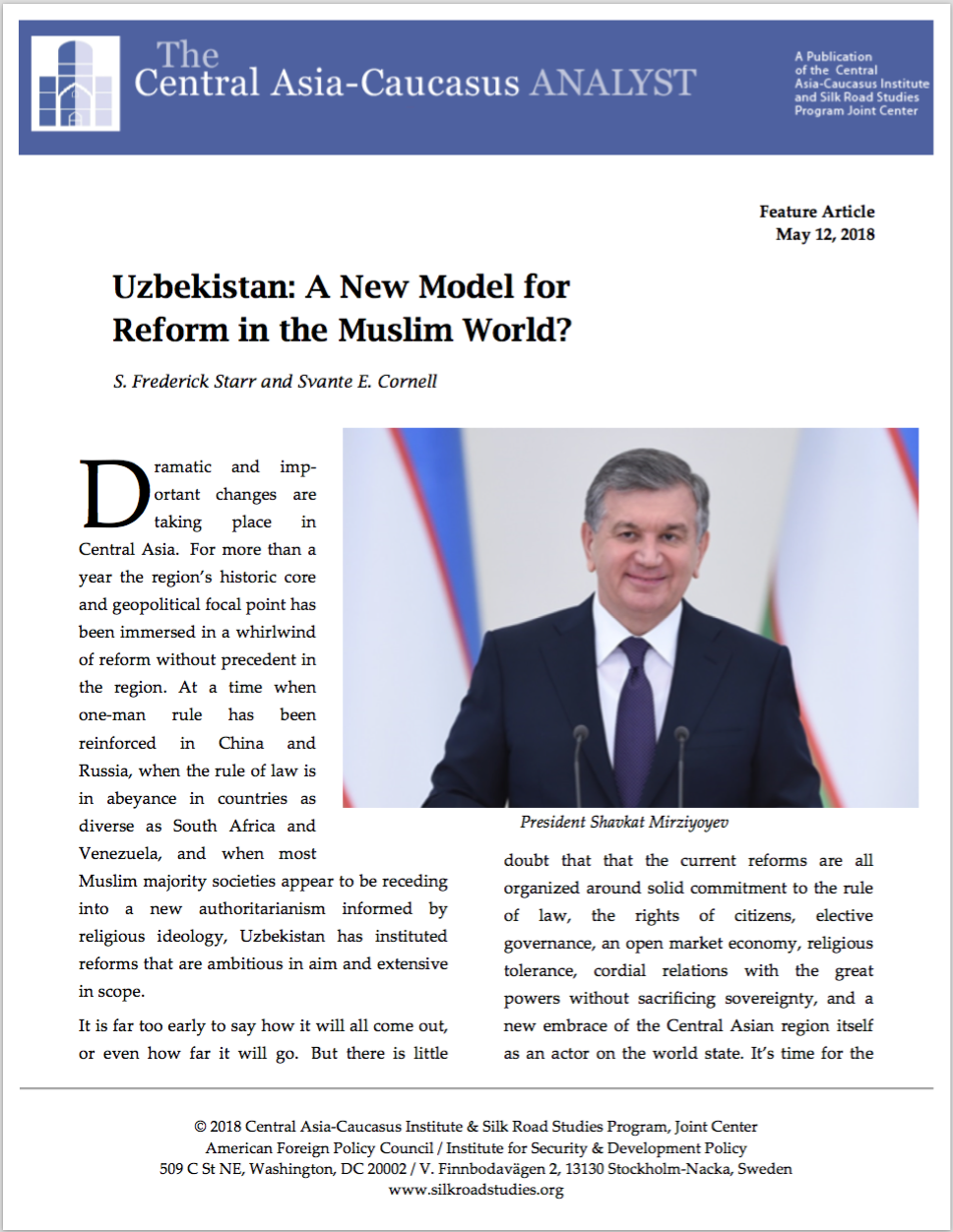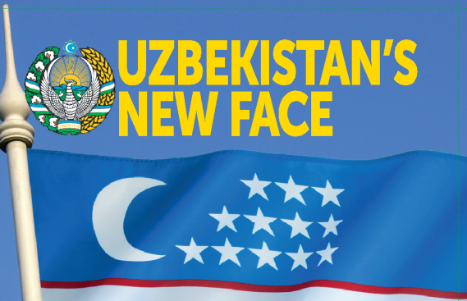CACI Forum: Toward "Enlightened Islam"? Religion and the Secular State in Uzbekistan
Toward "Enlightened Islam"? Religion and the Secular State in Uzbekistan
Uzbekistan has remained staunchly secular and taken a firm stand against extremist movements since independence. In recent years, however, Uzbekistan’s policies have shifted from a defensive to a more proactive approach. The recent surge of reforms has affected the religious area as well. Uzbekistan has taken major steps toward the promotion of what President Shavkat Mirziyoyev terms “Enlightened Islam” at home and on the world stage.
This Forum was part of CACI’s ongoing research on the relationship between politics and religion in Central Asia and the Caucasus, and coincided with the release of the Silk Road Paper “Religion and the Secular State in Uzbekistan”, by Svante E. Cornell and Jacob Zenn.
Speakers: Svante E. Cornell, Director, Central Asia-Caucasus Institute at the American Foreign Policy Council
Moderator: Frederick Starr, Chairman, Central Asia-Caucasus Institute
Where: Middle East Institute: 1319 18th Street NW, 20036
When: Thursday, June 7, 2018 from 4:00 - 5:30 pm
Full Recording of the Forum Below:
Uzbekistan's New Face
Uzbekistan: A New Model for Reform in the Muslim World
By S. Frederick Starr and Svante E. Cornell
Central Asia-Caucasus Analyst
May 12, 2018
 Dramatic and important changes are taking place in Central Asia. For more than a year the region’s historic core and geopolitical focal point has been immersed in a whirlwind of reform without precedent in the region. At a time when one-man rule has been reinforced in China and Russia, when the rule of law is in abeyance in countries as diverse as South Africa and Venezuela, and when most Muslim majority societies appear to be receding into a new authoritarianism informed by religious ideology, Uzbekistan has instituted reforms that are ambitious in aim and extensive in scope.
Dramatic and important changes are taking place in Central Asia. For more than a year the region’s historic core and geopolitical focal point has been immersed in a whirlwind of reform without precedent in the region. At a time when one-man rule has been reinforced in China and Russia, when the rule of law is in abeyance in countries as diverse as South Africa and Venezuela, and when most Muslim majority societies appear to be receding into a new authoritarianism informed by religious ideology, Uzbekistan has instituted reforms that are ambitious in aim and extensive in scope.
It is far too early to say how it will all come out, or even how far it will go. But there is little doubt that that the current reforms are all organized around solid commitment to the rule of law, the rights of citizens, elective governance, an open market economy, religious tolerance, cordial relations with the great powers without sacrificing sovereignty, and a new embrace of the Central Asian region itself as an actor on the world state. It’s time for the world to take stock of this startling development.



